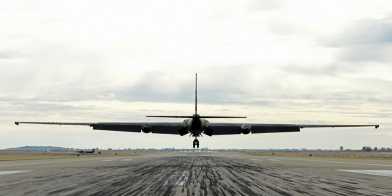03
Arms Control Without Treaties

Increasing tensions between nuclear powers and the disruptive potential of various technologies are heightening nuclear risks, argue Névine Schepers and Oliver Thränert in this CSS Policy Perspective. While nuclear arms control treaties may be difficult to negotiate, informal measures can provide opportunities to reduce risks.
Artificial Intelligence, Forward‐Looking Governance and the Future of Security

Over the last years, AI applications have come to play a role in many security‐related fields. CSS Director Andreas Wenger and Sophie-Charlotte Fischer show in this article that scholars who want to study AI’s link to power and security should widen their perspective to include conceptual approaches from science and technology studies (STS).
Yemen – A Playing Field for Regional Powers

External powers have a key impact on what is happening in the war in Yemen, making the situation even more complex. Under its new president, Joe Biden, the US is strongly committed to ending the conflict. This remains a difficult task, argues Jeremy Guggenheim in this CSS Analysis. Even if the external actors were to retreat prematurely, Yemen would remain a divided country where different ethnic groups have a profound mistrust of each other.
CSDP Missions: Addressing their Limited Reform Impact

The CSDP missions in Ukraine, Kosovo, and Iraq operate from the right diagnosis of the need to strengthen the security sectors and the rule of law, argues Henrik Larsen in this CSS Analysis. However, their limited impact so far raises questions as to whether the EU is able to increase the missions’ leverage in the host countries and thereby facilitate the desired reforms.